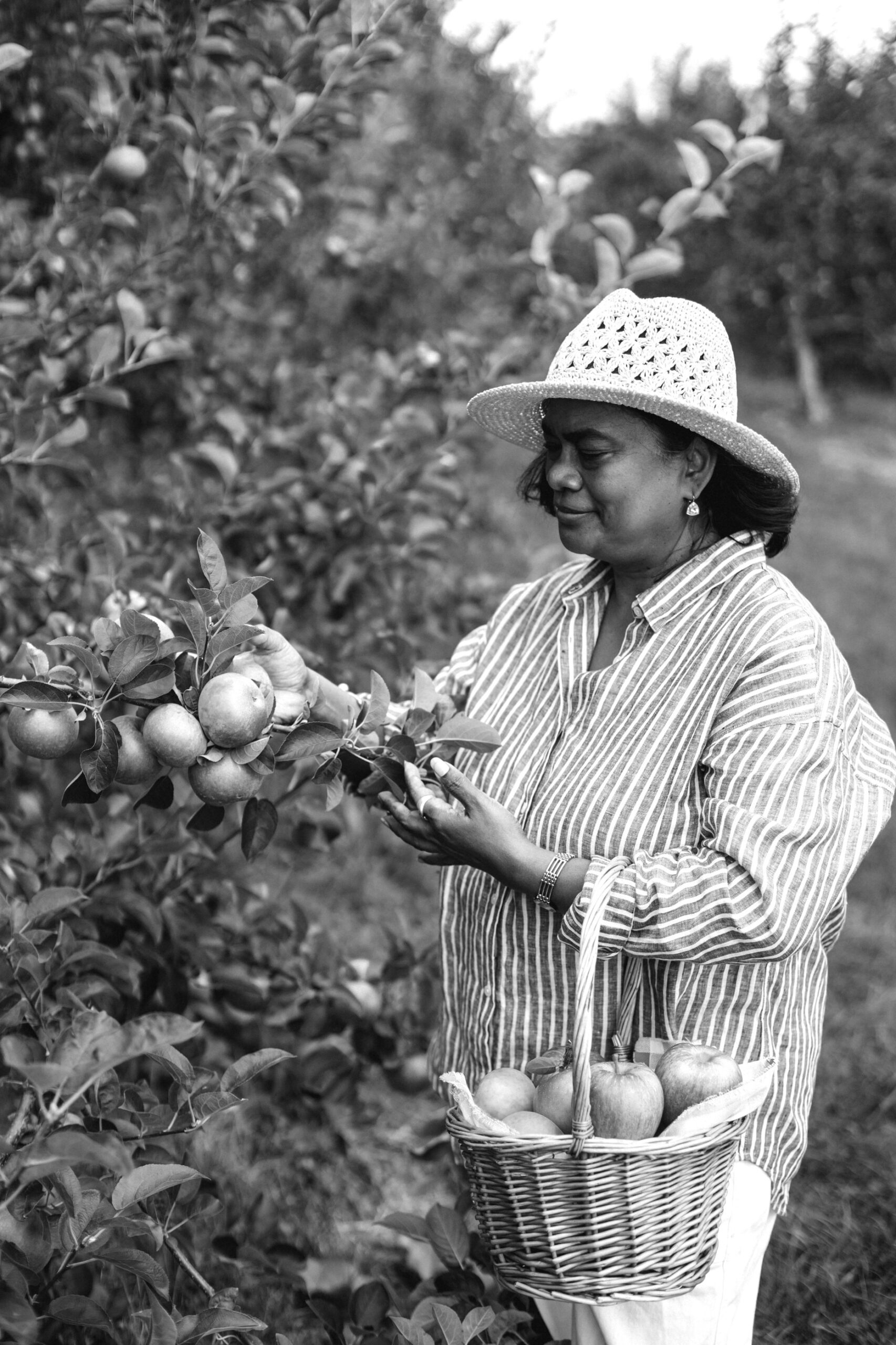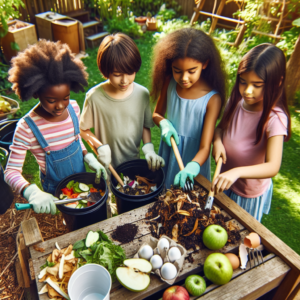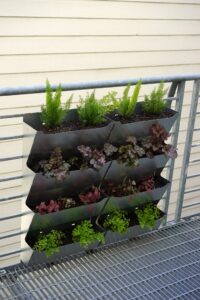Contents
- 1 Growing Joy: The Secret to Satisfaction with Therapeutic Gardening
- 2 Seeds of Happiness: The Basics of Therapeutic Gardening
- 3 Harvesting Health: The Mental Benefits of Digging In
- 4 Cultivating Community: Social Advantages of Shared Spaces
- 5 The Root of Wellbeing: Physical Rewards of Garden Therapy
- 6 Green Care on a Budget: Affordable Therapeutic Gardening Tips
- 7 Frequently Asked Questions (FAQ) – Digging Deeper into Gardening for Wellbeing
- 8 Author
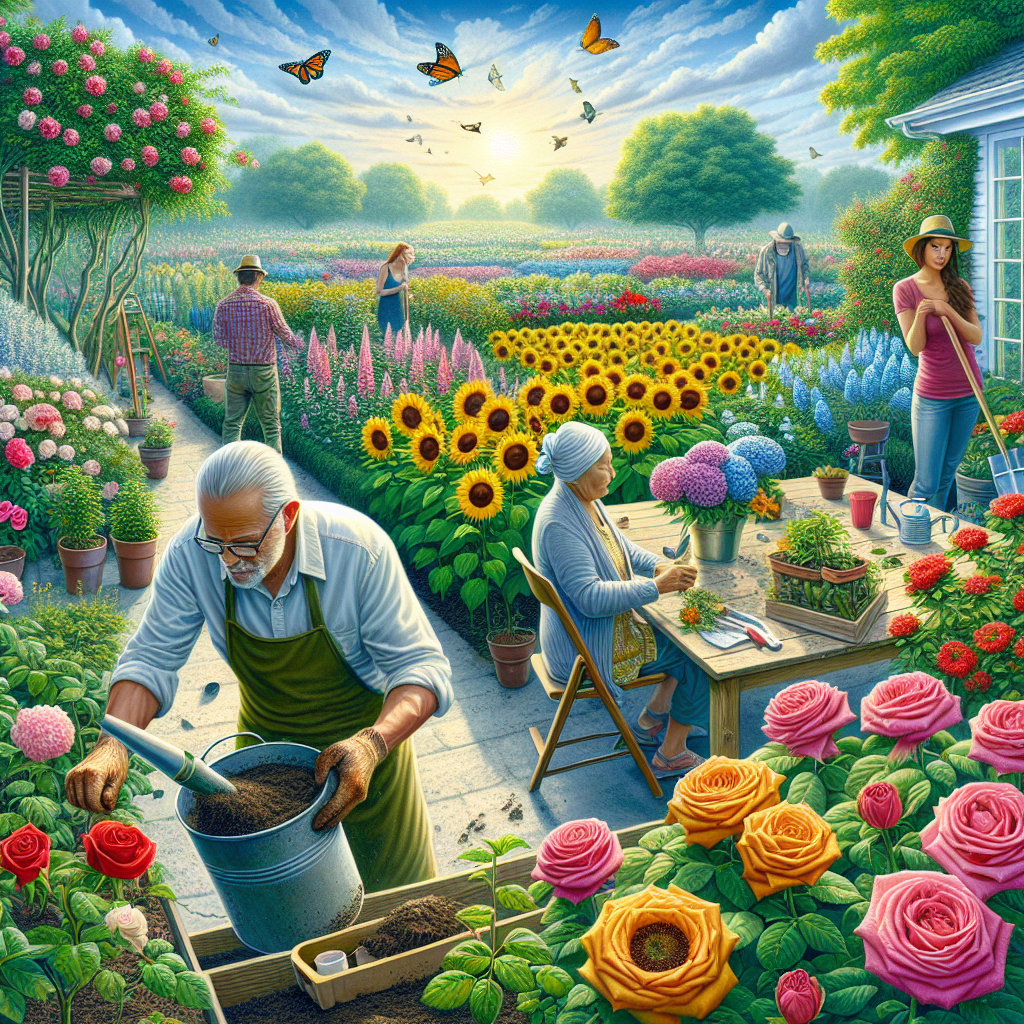
Growing Joy: The Secret to Satisfaction with Therapeutic Gardening
Imagine stepping into a garden where every plant and flower is a brushstroke in a masterpiece of calm. This is the essence of therapeutic gardening – a sanctuary where nature’s tranquility meets the nurturing touch of your hands. It’s not just about growing plants; it’s about growing happiness and satisfaction within yourself.
Key Takeaways: Article-at-a-Glance
-
Therapeutic gardening is a powerful tool for enhancing mental well-being.
-
Engaging with plants can lead to significant stress relief and mood improvement.
-
Gardening activities can boost self-esteem and promote a sense of accomplishment.
-
Social connections are often strengthened through shared gardening experiences.
-
Physical health benefits, including increased fitness and vitamin D intake, complement the mental health perks of gardening.
Seeds of Happiness: The Basics of Therapeutic Gardening
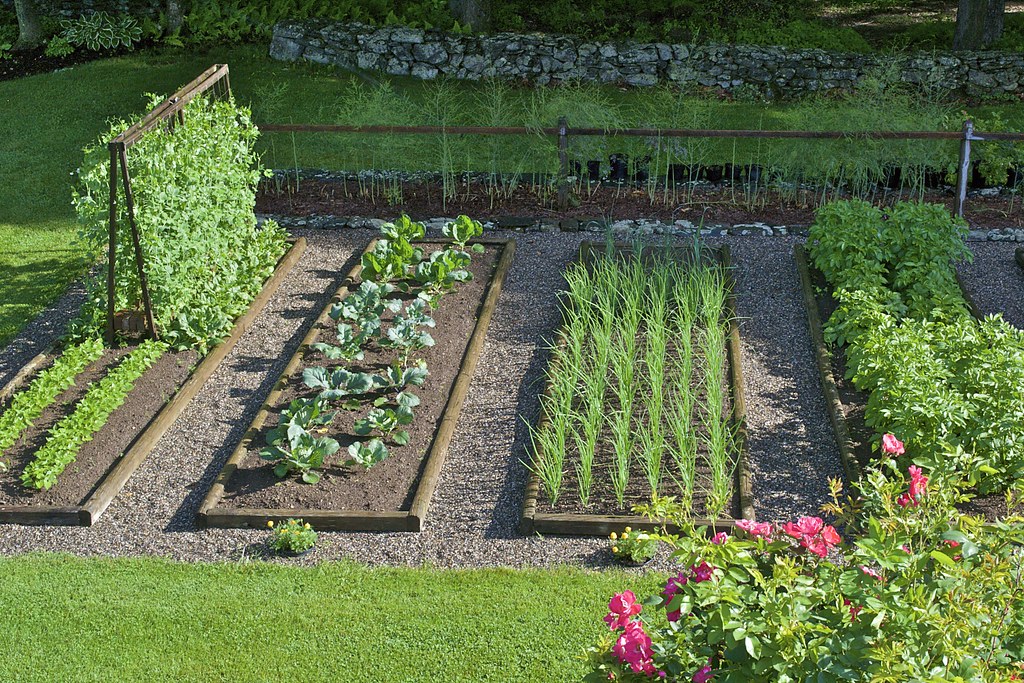
“Seeds of happiness | This shot show four …” from www.flickr.com
At its core, therapeutic gardening is the practice of engaging with plant life to promote mental and emotional well-being. Whether it’s a sprawling backyard or a modest collection of indoor pots, the act of caring for plants can sow the seeds of happiness in your life.
It’s simple to get started. You need some soil, a few seeds, and a dash of enthusiasm. Select a sunny spot, be it on a windowsill or a patch of earth, and let’s begin this journey together. Gardening is not just about the harvest; it’s about the moments of joy and peace along the way.
As you dig, plant, and nurture, you’re not just cultivating a garden – you’re cultivating a healthier, happier you. Let’s explore how therapeutic gardening can turn your green space into a haven of satisfaction and happiness.
What is Therapeutic Gardening?
Therapeutic gardening is the intentional use of gardening and plant-based activities to support health and wellness. It’s a holistic approach that recognizes the symbiotic relationship between people and plants.
This practice isn’t limited to any specific group; it’s inclusive and adaptable, making it perfect for anyone looking to enrich their life. From children to seniors, from novices to green thumbs, therapeutic gardening is a universal language of growth and healing.
And the best part? You set the pace. There’s no pressure to have the perfect garden. Every seed planted is a step toward personal satisfaction and a happier state of mind.
The Science Behind Plants and Happiness
It’s not just anecdotal evidence that points to the benefits of therapeutic gardening; science backs it up too. Studies have shown that interacting with plants can reduce cortisol levels – that’s the stress hormone that can take a toll on our health.
Moreover, the act of nurturing a living thing can stimulate the release of endorphins, the body’s natural feel-good chemicals. These biochemical responses are a testament to the profound impact that a simple gardening session can have on our mood and overall sense of happiness.
And when we see the fruits of our labor – be it a blooming flower or a ripe tomato – our brain rewards us with a surge of dopamine, a neurotransmitter associated with pleasure and satisfaction.
Harvesting Health: The Mental Benefits of Digging In
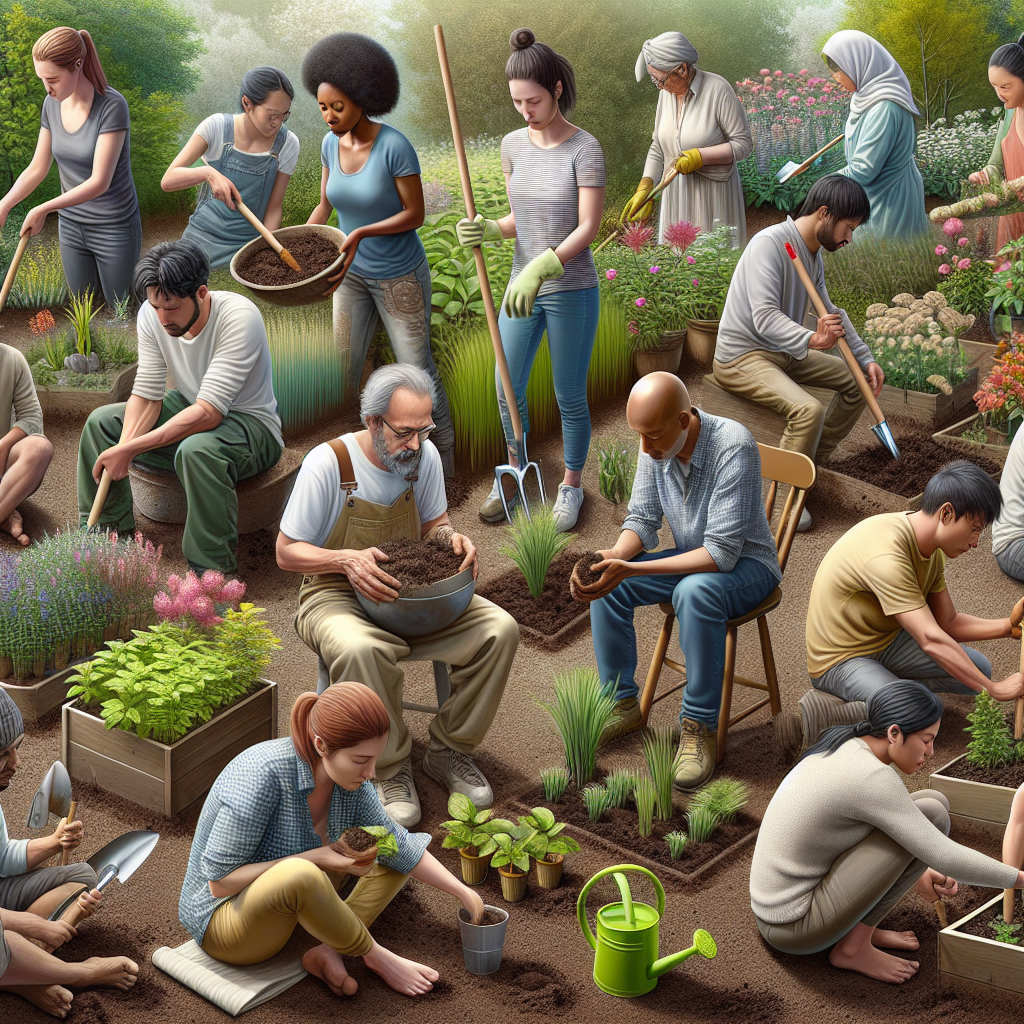
When you immerse yourself in the world of therapeutic gardening, you’re signing up for more than just a hobby; you’re embracing a form of self-care that can yield incredible benefits for your mental health.
The rhythmic nature of gardening tasks like weeding, planting, and pruning can be incredibly meditative, offering a chance to clear your mind and focus on the present. This mindful approach to gardening can help to alleviate symptoms of anxiety and depression, creating a peaceful refuge from the stresses of daily life.
-
Reduces stress and anxiety by providing a serene escape
-
Enhances mood through exposure to sunlight and greenery
-
Improves concentration and mindfulness through focused activities
-
Encourages a sense of accomplishment with visible results
-
Promotes relaxation with gentle, repetitive tasks
-
Fosters a connection with nature, which has inherent therapeutic properties
-
Provides an opportunity for creative expression
By dedicating time to tend to a garden, you’re also tending to your mental landscape, pruning away the worries and nurturing your inner peace. Let’s dig deeper into the specific ways gardening can cultivate a happier, healthier you.
Stress Reduction and Peace of Mind
One of the most immediate benefits of therapeutic gardening is the reduction of stress. The simple act of being outdoors and getting your hands dirty can shift your focus from the chaos of life to the calming effects of nature. It’s like each seed you plant helps bury the day’s tensions.
-
Physical activity in the garden can lower stress hormones.
-
Being surrounded by greenery can naturally induce relaxation.
-
The satisfaction of nurturing plants can bring inner peace.
-
Gardening can be a solitary retreat or a shared peaceful activity.
-
Watching your garden grow provides a sense of continuity and stability.
As you water your plants, you’re also watering the seeds of tranquility within your mind. It’s a gentle reminder that growth takes time, both in the garden and within ourselves.
Boosting Mood with Blooms
There’s something undeniably uplifting about a garden in bloom. The colors, the scents, and the variety stimulate our senses and brighten our day. Flowers have a unique way of bringing smiles, and it’s not just about their beauty.
-
Colorful flowers can stimulate feelings of joy and energy.
-
The fragrance of blooms can evoke positive memories and emotions.
-
Flowers can serve as a reward for your gardening efforts, boosting your mood.
-
Creating a visually appealing space can enhance your overall happiness.
-
Interacting with flowers can increase empathy and reduce aggression.
When you’re feeling down, just step into your garden. Let the blooms be a natural prescription for happiness, no side effects included, just pure joy.
From Gardening to Growth: Building Self-Esteem
Gardening is more than just a pastime; it’s a journey of self-discovery and growth. As your garden flourishes, so does your confidence. Each new sprout is a testament to your care and dedication, reinforcing your sense of self-worth.
-
Completing gardening tasks can give you a sense of achievement.
-
Overcoming gardening challenges can bolster your problem-solving skills.
-
Learning new gardening techniques can enhance your knowledge and skills.
-
Seeing the results of your labor can provide tangible proof of your abilities.
-
Gardening success can translate into increased confidence in other areas of life.
With every plant that grows, you’re reminded that you have the power to cultivate positive change in your life. That’s a powerful fertilizer for self-esteem.

“Community Garden Images | Free Photos …” from www.rawpixel.com
Therapeutic gardening isn’t just a solo activity; it’s a catalyst for community building. Shared garden spaces become hubs of interaction, learning, and support. Here, gardeners exchange more than just plants – they share stories, advice, and companionship.
Community gardens can transform neighborhoods, fostering a sense of belonging and collective pride. They’re not just plots of land; they’re woven into the social fabric, strengthening the ties between those who till them.
Connecting with Others Through Gardening
When you garden with others, you’re sowing the seeds of friendship and collaboration. Gardening clubs and community gardens provide opportunities to meet like-minded individuals who share your passion for plants.
-
Working on a common project can create lasting bonds.
-
Gardening with others can lead to the exchange of knowledge and tips.
-
Shared successes and challenges in the garden can build camaraderie.
-
Gardening together can bridge generational and cultural gaps.
-
Community gardens can become a source of local pride and unity.
Every shared harvest is a celebration of teamwork and the collective spirit. It’s amazing how a shared love for gardening can turn neighbors into friends.
Creating Inclusive Gardens for Diverse Groups
Inclusive gardens are designed to welcome gardeners of all abilities, ages, and backgrounds. They’re about creating spaces where diversity is not just accepted but celebrated. These gardens are built with accessibility in mind, ensuring everyone has the opportunity to participate and benefit from the healing power of gardening.
-
Accessible garden beds allow individuals with mobility challenges to engage comfortably.
-
Sensory plants cater to those with visual or hearing impairments.
-
Community programs can offer educational opportunities for all skill levels.
-
Cultural diversity in plant selection can reflect and honor the community’s heritage.
-
Inclusive gardens can promote equality and understanding among gardeners.
By fostering inclusivity, we cultivate a garden culture that mirrors the rich tapestry of our communities. It’s a beautiful way to grow together, not just plants, but also as a society.
The Root of Wellbeing: Physical Rewards of Garden Therapy

Gardening is more than a feast for the eyes and the soul; it’s a workout for the body too. Every time you step into your garden, you’re engaging in physical activity that strengthens your muscles and boosts your stamina. It’s a natural gym, where your exercise routine comes with a side of fresh air and greenery.
Fueling Fitness with Functional Movement
Think of gardening as a series of functional movements. You’re squatting to plant seeds, stretching to prune branches, and lifting bags of soil – these are all exercises that contribute to your overall fitness. And the best part? It doesn’t feel like a chore because you’re rewarded with a beautiful, living space.
-
Digging and shoveling improve cardiovascular health and build muscle.
-
Lifting pots and planters enhances strength and endurance.
-
Repetitive tasks like weeding and raking increase flexibility and dexterity.
-
Pushing a wheelbarrow can be a full-body workout.
-
Gardening tasks can burn calories, contributing to weight management.
As you tend to your garden, you’re not just cultivating plants; you’re cultivating a stronger, healthier you.
Sunshine and Vitamin D: A Natural Dose of Health
When you’re out in the garden, you’re not just soaking up the beauty of nature; you’re soaking up the sun’s rays, which help your body produce vitamin D. This essential nutrient plays a crucial role in bone health and immune function, and gardening offers a delightful way to get your daily dose.
-
Exposure to sunlight during gardening can increase vitamin D levels.
-
Vitamin D from the sun helps maintain bone health and reduce the risk of osteoporosis.
-
Sunlight can improve mood and help prevent seasonal affective disorder (SAD).
-
Regular sun exposure can regulate sleep patterns, thanks to the natural production of melatonin.
-
Just remember to protect your skin with sunscreen and appropriate clothing!
So, go ahead and bask in the glow of the sun as you water your flowers – your body will thank you for it.
Green Care on a Budget: Affordable Therapeutic Gardening Tips

Creating a therapeutic garden doesn’t have to drain your wallet. With a little creativity and resourcefulness, you can cultivate a peaceful green space on a budget. It’s about using what you have and knowing where to look for the best deals or free resources.
DIY Solutions for Home Therapeutic Gardens
Do-it-yourself projects are a wallet-friendly way to build your garden. Upcycling materials like pallets, containers, and old furniture can add character to your space without costing much. Even everyday items can be transformed into planters or garden decorations.
-
Turn empty jars and cans into charming plant pots.
-
Use cuttings from friends’ plants to start your garden for free.
-
Build raised beds from reclaimed wood or bricks.
-
Create garden markers from painted stones or recycled plastic.
-
Make your own compost to enrich the soil naturally.
Remember, the goal is to enjoy the process as much as the outcome. Each DIY project is a chance to learn and to put your personal touch on your garden.
Finding Free Resources and Community Support
Community resources can be a goldmine for the budget-conscious gardener. Local gardening clubs, community gardens, and even libraries can offer tools, seeds, and advice at little to no cost. Don’t be shy to reach out and connect with these groups.
-
Attend plant swaps to diversify your garden for free.
-
Look for gardening workshops at local community centers.
-
Join online gardening forums for tips and support.
-
Check with local nurseries for discounts or donations.
-
Volunteer at a community garden to gain experience and plants.
By tapping into the collective knowledge and generosity of the gardening community, you can grow your therapeutic garden without breaking the bank.
Frequently Asked Questions (FAQ) – Digging Deeper into Gardening for Wellbeing

Can Gardening Really make me happy?
Yes, gardening can be a significant source of joy. The combination of physical activity, exposure to nature, and the satisfaction of nurturing life can elevate your mood and reduce feelings of stress or sadness. It’s a rewarding cycle: the more you care for your garden, the more it gives back to you in happiness.
-
Working with plants can help you feel more relaxed and calm.
-
Seeing the results of your efforts can give you a sense of pride.
-
Gardening can be a creative outlet, allowing you to express yourself.
-
The social aspect of gardening can lead to friendships and community connections.
-
Being in nature is inherently soothing and has been shown to improve mental health.
So, when you’re feeling blue, remember that your garden is a living invitation to smile.
What physical health benefits are associated with therapeutic gardening?
The physical health benefits of gardening are plentiful. As a low-impact exercise, it can help maintain flexibility, build strength, and improve endurance. The tasks involved in gardening can also contribute to better hand dexterity and coordination.
-
Gardening activities like digging and weeding can increase cardiovascular fitness.
-
Lifting pots and pushing wheelbarrows can strengthen muscles.
-
Spending time outdoors can lead to increased vitamin D levels, which is essential for bone health.
-
The act of gardening can help with weight management by burning calories.
-
Engaging with the earth has been shown to have immune-boosting properties.
Whether you’re planting a single flower or an entire vegetable patch, you’re nurturing not just the plants, but your own physical well-being too.
What Are the Best Plants for Therapeutic Gardening?
Choosing the right plants is key to a fulfilling therapeutic gardening experience. The best plants are those that resonate with you personally, but some universally loved options are known for their ease of care and sensory rewards.
-
Lavender, with its calming scent, is great for relaxation.
-
Sunflowers are tall beacons of joy and very rewarding to grow.
-
Mint offers a refreshing aroma and can be used in teas or cooking.
-
Tomatoes are fruitful and give a sense of accomplishment when harvested.
-
Marigolds are bright and cheerful, with pest-repellent properties.
-
Succulents, for those with a busy schedule, require minimal care.
-
Herbs like basil and cilantro are easy to grow and great for beginners.
Remember, the best plants for your garden are the ones that bring you the most joy and fit your lifestyle. So, go ahead, pick the plants that speak to you, and watch your happiness grow along with your garden.
Is There Evidence Supporting Gardening as a Form of Therapy?
Yes, there is a growing body of evidence that supports the therapeutic benefits of gardening. Numerous studies have demonstrated that gardening can decrease levels of depression, anxiety, and stress. It’s not just about the anecdotal stories; the research is there to back up the claims.
For instance, a study published in the Journal of Health Psychology found that gardening led to decreases in the stress hormone cortisol, contributing to feelings of recovery from stress.
-
Research has shown that horticultural therapy can improve the mood of people with depression.
-
Gardening activities have been linked to improved mental clarity and a reduction in symptoms of dementia.
-
Studies indicate that gardening can improve physical health, which in turn supports mental well-being.
-
Community gardening has been associated with social benefits, including increased community engagement and reduced loneliness.
So, when you’re out there getting your hands dirty, remember that you’re part of a well-researched movement towards better health and happiness.
Does engaging in gardening foster a greater appreciation and understanding of the environment?
Engaging in gardening undoubtedly fosters a deeper connection with the environment. As gardeners, we become attuned to the rhythms of nature, the importance of biodiversity, and the fragility of our ecosystems. This hands-on interaction educates us on the impact of our actions on the environment and can inspire more sustainable living.
-
Gardeners often develop a keen interest in composting and reducing waste.
-
Observing the interplay of plants and wildlife leads to a greater respect for natural habitats.
-
Water conservation becomes a priority as we learn to care for our plants efficiently.
-
Gardening can lead to a reduction in carbon footprint by growing food locally.
-
It encourages the use of organic and non-toxic gardening practices.
Through gardening, we not only grow plants, but we also grow our environmental stewardship, ensuring a healthier planet for future generations.
So, grab a trowel, pick your favorite seeds, and embark on a journey that promises growth in every sense of the word. As you watch your garden flourish, you’ll find that your satisfaction and happiness bloom right alongside it. Happy gardening!
